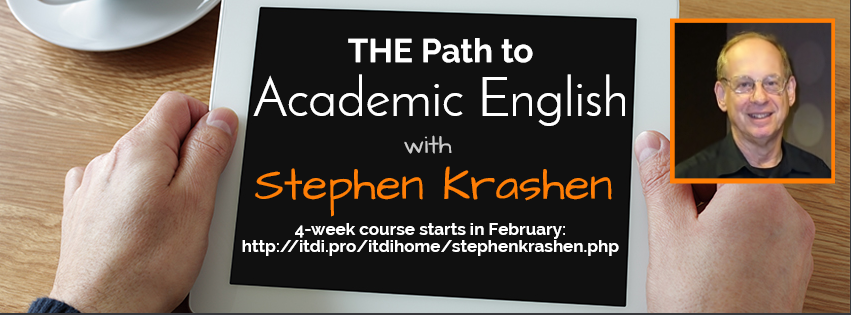 Chuck Sandy
Chuck Sandy
I had a tough time in Mrs. Collard’s 2nd grade reading class. Though already a reader with books of my own at home, the skill-based phonics worksheets we were doing in class made no sense to me. Still I struggled along. After one particularly tough day with the worksheets, Mrs. Collard called my mother in to explain that she’d be moving me from the top reading group, the Bluebirds, down to the bottom group, The Sparrows, because I didn’t “get it.” I was devastated, but my mother was just confused. “How could that be? He loves books,” my mother exclaimed. “Maybe so,” said Mrs. Collard, “but he can’t read. Look how poorly he did on these worksheets”. And so my mother looked. Then to Mrs. Collard she said, “but this isn’t reading. This is nonsense” and to me “come on, let’s go” and she took me to the public library and got me a library card. “Now this,” she said, leading me through that room full of books, “this is reading. You can choose up to six books to take home. I’ll be back in an hour.” I went on to eventually read almost every book in that library and came to feel more at home there among books then I ever felt in school.
I tell you this story not just because it’s what launched me into my own work in education, but also to show that even back in 1967 when I was in 2nd grade, schools were busy turning reading instruction into a school subject and by doing so needlessly complicating the whole process. People like my mother recognized this, but the general public became increasingly convinced that the teaching of reading was a science best left to specialists and that education was in crisis because test scores showed that literacy rates were on the decline. No one much ever stopped to consider that this crisis might have originated in the increasingly complicated instruction. Before too long this complicated instruction had became so ingrained in schools that it was almost heresy to call it nonsense.
Fortunately, by the time I got to grad school and later started working in education myself, there were a few researchers brave enough to call out the nonsense. That day in 2nd grade and my years in the library made the work of Kenneth “we learn to read by reading” Goodman, Frank “reading without nonsense” Smith, Tracy “natural approach” Terrell, and Stephen “comprehension hypothesis” Krashen really resonate with me. In fact, reading their work changed my life – especially the work of Krashen. Not only were these researchers unafraid of calling nonsense nonsense, they also had increasingly massive amounts of data to prove it was nonsense. They were (and are) my heroes. I’ll leave it to you to read the research, and I’ll tell you where it led me.
Steeped in all this, determined never to be a Mrs. Collard, and fresh from reading Krashen and Terrell’s The Natural Approach, I found myself in Tokyo in 1984, newly hired by a college to put together an English Language program and given the freedom to pretty much do whatever I wanted. What I wanted in those pre-internet days was for the school to subscribe to multiple copies of fifty different magazines on a wide range of topics and buy a few thousand paperback books. In addition to building a library of interesting books students could borrow, my idea was for each of the twenty of so teachers I worked with to walk into class each day with a basket full of books and magazines, spread them out and say “find something good to read.” What I wanted to do was to run an almost pure free voluntary reading program in which everyone would have lots of time to read lots of interesting things and learn how to talk about the interesting things they read.
I worked for a few weeks on my plan and submitted it to my director of studies.
“How will we know that students are reading,” the director of studies asked?
“We’ll see them reading,” I answered.
“How will we know they’re understanding what they read,” he asked?
“We’ll ask them,” I answered.
“What about testing?” he asked.
“We won’t have any tests,” I answered.
“I’ll have to think this over and discuss it with others,” he said.
A few days later he came back and said something like “there are some who think that maybe you’re not ready to run a program, Mr. Sandy, but if you can prove that all this might be useful, I’m willing to listen”.
Happily, that was the year Stephen Krashen himself was one of the plenary speakers at the Japan Association of Language Teachers (JALT) conference in Tokyo, and so not only did I give my DOS a copy of The Natural Approach, I invited him to join me at JALT to hear Dr. Krashen speak, and he did. After Stephen’s first plenary, my director of Studies leaned over and said, “that man makes good sense, and he’s funny, too”. By the end of the conference, he was so impressed by Stephen Krashen’s work that I not only got to keep my job but also got the money I needed to buy all those books and magazines, then went on to run that program for a couple of years, and learned much more than I can say here doing it. Thank you Stephen.
It’s now almost 50 years since I was in 2nd grade with Mrs. Collard, and more than 30 years since Stephen Krashen’s job-saving plenaries at JALT. It’s therefore sad to have to say that not only does the nonsense about reading instruction continue. It’s even sadder to have to say that it’s gotten worse. In this era of big data, high stakes testing, adaptive learning, and all that nonsense, the nonsense has become dangerous.
It’s therefore wonderful to be able to say that Stephen Krashen is still out there calling nonsense nonsense and providing the data to prove it’s nonsense. In all this time he’s never gone off message, even once. Thank goodness. Today, there’s much more at stake than just reading programs and somebody’s job as you’ll note in this interview with Stephen in Education Week Teacher titled “Stephen Krashen: Children Need Food, Health Care, and Books: Not New Standards and Tests” that I hope you’ll take a few minute to read:
Children Need Food, Heath Care & Books: Not New Standards and Tests
These are the stakes. The lives of our children are at risk and the solutions, as ever, actually are quite simple. Will people ever listen? Let’s hope so.
Get iTDi certified in teaching academic language with Stephen Krashen. Join Stephen Krashen for his iTDi Advanced Course THE Path to Academic English. Live sessions with Dr. Krashen begin February 7th. All classes are recorded.



I really enjoyed reading your story. The bit about your mother’s reaction and her taking you to the library is golden. I will most likely relay that story in the future. Thanks Chuck!